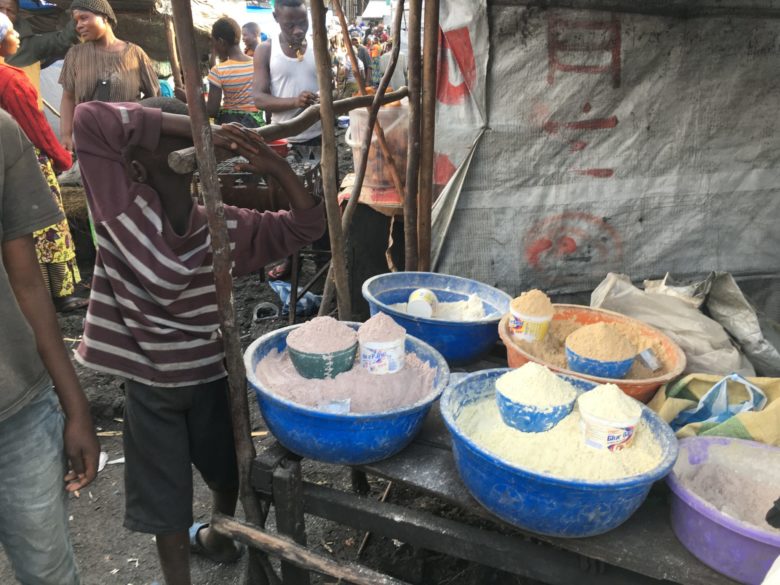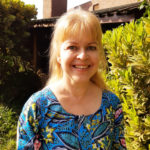Karibu chakula! Welcome to eat!

When you're in the Congo, you don't have to eat alone. The mother of the house, mama, has been busy with the pots and pans in the kitchen for some time. Good smelling vegetarian dishes, thick bean sauce, and tasty fish are brought to the table – after all, we live by the lake. Fishermen lower their nets early in the morning fog and catch fish from the lake to sell at the market.
The staple of the meal is steaming ugali balls, without which it feels like you haven’t eaten. Ugali is a thick porridge-like food made from cornmeal that is eaten in several African countries. The ugali rolls around in my mouth a bit too long, but I valiantly try swallow it. Those at the table watch amusedly as the ugali slowly dwindles from my plate. For dessert, we’ll get some colorful fruit.
A meal here is more than just quieting your hunger or taking a break from the day’s work. Dining is fellowship. Whoever you’ve shared ugali with has gotten close to you and has become part of your family. Before the meal we quiet down and say grace. We are also thankful to be able to share our food with dear friends.
An invitation to dinner shows the greatest hospitality, fellowship, and respect – that you are accepted and important. A refusal to eat together would be a sign of pride and indifference. It’s unlikely you’d be invited again.
Dining is also a privilege in a country where hunger and deprivation are commonplace.
An estimated over 3 million children under five suffer from malnutrition in the Congo, and at least a million of them from severe hunger. 27 million people need food security. Acute hunger means not eating every day. Malnutrition and hunger are perpetuated by ongoing conflicts that have forced people to flee their homes. Fields remain uncultivated and people must depend on help from others if it is available.
The pandemic worsened the situation even more, as families’ access to already minimal social support services deteriorated. Also, the withdrawal of several organizations from the region ended the aid, which cannot easily be replaced.
At this time of year, Christians are nearing Easter, or freedom. In His darkest hour, Jesus cried out on the cross to the Father: Why have you forsaken me? This cry has been on my mind here in different situations. I have thought about the people of this beautiful country, their history and today. I’ve tried to understand, with what resources do you build a future with a very fragile daily life: on a foundation of mental and physical hunger in many ways.
Congo is a forgotten crisis – did God also abandon it?
A shared meal calls for reconciliation. Building peace through everyday actions strengthens the transformative power that emerges from within. In addition to the daily meal, a lot of support and willingness is needed for rebuilding. We have an important discussion with our partners, on how advocacy work can enable the Congo of tomorrow to see more and more children eating ugali and bean sauce without being hungry.

Blog by Katja Köykkä
Katja is a special advisor to the Congo DRC country programme. Working with the daily life of a fragile country, she is touched by people’s stories and the power of the community. More than advice, she has questions, through which she reflects life together with the Congolese.
